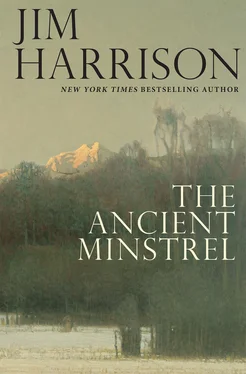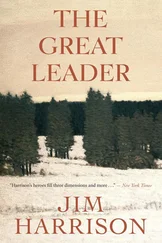The “everything is permitted” confusion has pretty much lasted my entire life. Of course it’s nonsense but then the ego is beleaguered without its invented fuel and ammunition. You can’t squeak out like a mouse that you’re a poet, or walk in the mincing steps of a Japanese prostitute. Part of the trouble is that you are liable to think of yourself as a poet long before you write anything worth reading and you have to keep this ego balloon up in the air with your imagination. I survived on both good and very bad advice. Doubtless the best is Rilke’s Letters to a Young Poet and possibly the worst, which I religiously adhered to, was that of Arthur Rimbaud who advised you to imagine your vowels had colors and for you to go through the complete disordering of all your senses, which is to say you should become crazy. I managed quite easily. This was mostly to advise young poets not to become bourgeois. Even conservative old Yeats said that the hearth is more dangerous than alcohol. I feel recalcitrant about this having had a number of friends that are dead alcoholics. We’ve always lived rurally where it is much easier to avoid being bourgeois. The natural world draws you to herself with such power that you can easily ignore the rest of the culture and social obligations. When I was eighteen I found an Italian poet I liked, Giuseppe Ungaretti. He wrote, Vorremmo una certezza (give us a certainty), which is bad advice but understandable if you just lived through World War II. He admitted, Ho popolato di nomi il silenzio (I have peopled the silence with names). Also, Ho fatto a pezzi cuore e mente per cadere in servitu di parole (I have fragmented heart and mind to fall into the servitude of words). Of course. That’s what you do. You might still be gibbering in your casket.
All over America young people are going to bad writers for good advice. There are so many MFA programs in the colleges and there are not enough good writers around to teach in them. As opposed to what you might think, teaching is brutally hard work if you insist on doing a good job. And your own work is liable to suffer.
Money is the vicious whirl, a trap you are unlikely to live through in a healthy way. If you subtract screenplays I didn’t make a living as a writer until my sixties. When I quit screenwriting to save my life my French rights moved in to save me.
In a lifetime of walking in the woods, plains, gullies, mountains I have found that the body has no more vulnerable sense than being lost. I don’t mean dangerously lost where my life was in peril but totally misdirected knowing there was a lifesaving log nine miles to the north. If you’re already tired you don’t want to walk nine miles, much of it in the dark. If you run into a tree it doesn’t move. I usually have a compass, also the sun or moon or stars. It’s happened often enough that I don’t feel panic. I feel absolutely vulnerable and recognize it’s the best state of mind for a writer whether in the woods or the studio. Your mind feels a rush of images and ideas. You have acquired humility by accident.
Feeling bright-eyed, confident, and arrogant doesn’t do this job unless you’re writing the memoir of a narcissist. You are far better off being lost in your work and writing over your head. You don’t know where you are as a point of view unless you go beyond yourself. It has been said that there is an intense similarity in people’s biographies. It’s our dreams and visions that separate us. You don’t want to be writing unless you’re giving your life to it. You should make a practice of avoiding all affiliations that might distract you. After fifty-five years of marriage it might occur to you it was the best idea of a lifetime. The sanity of a good marriage will enable you to get your work done.
Only later in life did she learn that chickens are the closest living relatives to dinosaurs. She found it hard to accept thinking we certainly aren’t obligated to believe everything science tells us. It was anyway hard to imagine a dinosaur while watching a chicken eating scratch in the barnyard.
However, not quite as deep into the well of the past a small girl named Catherine was sitting on a milk stool in her grandparents’ barnyard in Montana studiously watching chickens. She was in the second grade and had volunteered to write a report on the bird. Her classmates thought this was ludicrous. Why not report on horses or cows? Anything is more dramatic and interesting than an ordinary chicken. Families even kept chickens in the small village where Catherine lived only a half dozen miles from her grandparents’ farm. Sometimes Catherine walked the six miles, mostly cross-country, to study the chickens. A seven-year-old girl wouldn’t be allowed such a journey nowadays but back then it wasn’t extraordinary. Boys played baseball all summer long into the evenings without organized teams or cute little uniforms. Girls went camping and fishing which they liked as much as boys, or rode their nags for long miles cross-country to go swimming. Parents didn’t micromanage their children.
Catherine had three horses partly because of their need to keep one another company and partly because when it came to Catherine her father was a soft touch. They were kept at her grandparents’ and to her disappointment the horses didn’t care for chickens. They especially disliked the rooster Bob, who was arrogant and charged them crowing. He also charged Grandpa who kicked at him but rarely made contact because Bob was so deft. He was generally pleasant to Catherine seemingly thinking she was part of his brood.
Her grandmother was a bit capricious ordering chicks the post office delivered in a big box. Grandmother liked colorful feathers in her barnyard though she would get ordinary leghorns for reliability. The eggs were always white which Catherine’s aunts favored. Her daffy older brother wouldn’t eat eggs, odd for a farm kid but then he was a problem in every respect. That’s why her father treated her like a son. Her grandpa’s farm dog, a collie, used to retrieve the cows every day but thoroughly ignored the chickens though he would growl at the rooster if he approached which frightened the rooster. Grandpa only liked to eat brown eggs thinking they were healthier but then he was full of errant theories. Her father who was the banker in town said that this was because Grandpa was a Swede, and Swedes are known for their eccentricities. There were Rhode Island Reds and Plymouth Rocks for brown eggs, a few Golden Comets, a scattering of Anconas, and French Marans for variety and color. If you’re a farm woman you struggle for anything different from the farm routines.
Catherine’s father was American and grew up on the farm, while her mother was English. After he graduated from college he got a job with a big New York City bank with an office in London. He met her mother at a dance hall and he said that it was “love at first sight.” Her mother was younger and impulsive and desperately wanted to live on a farm and he lied saying that that was where he lived though he had no intention of returning to farm life. So they married in England and came back home to Montana. She was plainly furious when they reached Montana and moved into a grand nineteenth-century home in the village. She simply asked, “Where’s the farm you promised?” and he ignored her. She was already pregnant and knew she had to take his lie calmly.
When her parents quarreled which was frequently her mother would go out to his parents’ and sleep in the small quarters she had organized for herself up in the cold attic in winter. She’d take Catherine along when she was small. In the winter she’d carry a large stone she had heated on the stove up to the attic, wrapped in a blanket to keep their feet warm. Everyone knew that if your feet were warm the rest of the body was easy with enough blankets. Of course by 5:00 a.m. their feet were cold but that’s when her grandparents got up for breakfast to start the day. Catherine liked being with Grandpa at the kitchen table when he would sit waiting for it to get light outside, a very long wait in the winter but then the kitchen was warm from the wood-burning stove. Grandpa would invariably eat a half dozen brown eggs, ham or bacon or pork chops, and fried potatoes, also a bowl of Wheaties with pure cream. It doesn’t sound healthy but he worked on the farm until he was ninety. He wouldn’t have a tractor, believing that motor exhaust poisoned the ground, but plowed and cultivated with two large Belgian draft horses. Once when Grandpa had pneumonia her dad plowed the thirty-acre plot and was a physical wreck for a week. He was so proud that he had done it and her mother had to take many photos of the banker behind the plow yelling “gee” and “haw” so the horses would turn at the end of the row.
Читать дальше












